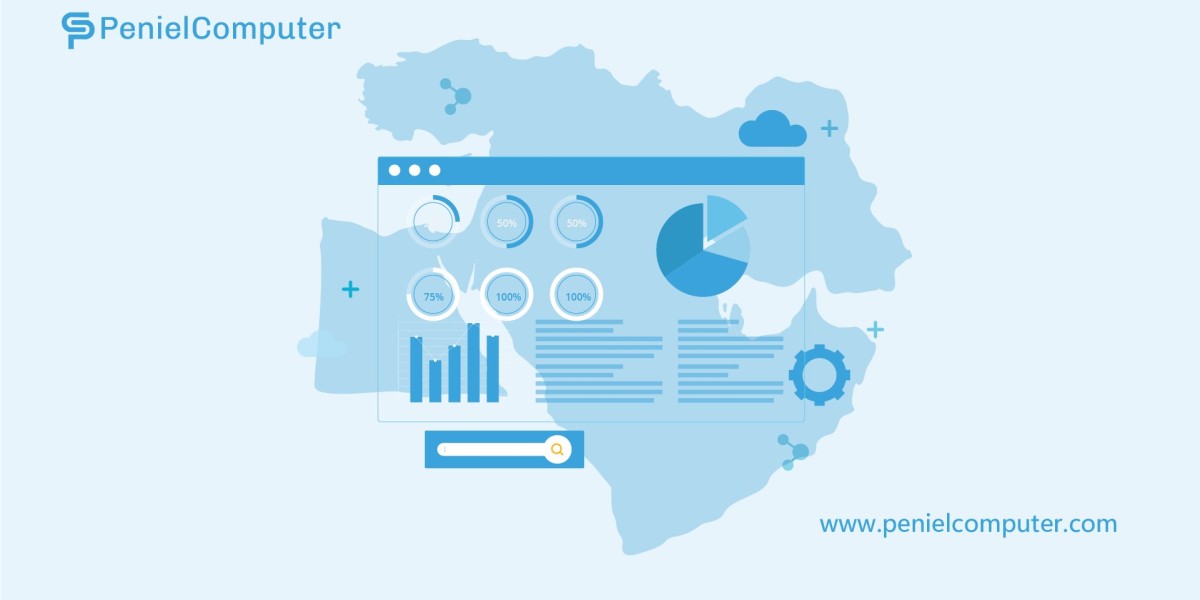Let's start by defining what real-time data analytics involves. It refers to the capability of gathering and analyzing data instantly, without any latency or delay. In contrast, traditional batch processing refers to gathering data over time and analyzing it later.
Real-time analytics allows businesses to respond to changes in their operations or market conditions rather than waiting for a report to get generated.
Now let's look at the benefits of real-time data analytics with ERP software.
Upgraded Visibility
More operational visibility is one of the main benefits. Companies can obtain a real-time snapshot of their performance. And make better decisions by examining generated data. For instance, a company can monitor its production line in real-time using analytics to spot any bottlenecks or quality problems. They can reduce downtime and raise overall productivity by dealing with these problems immediately.
Better Customer Service
Improved customer service is another advantage of combining real-time data analytics with ERP software. Companies can discover trends and preferences and modify their services by studying real-time customer data. For instance, a business can analyze customer purchases using real-time analytics and accordingly recommend relevant products or promotions. In addition to improving the customer experience, It can increase sales and customer loyalty.
Well-Informed Decisions
Moreover, real-time data empowers businesses to make quicker and more informed decisions. Decision-makers can respond to the changes in the market or their operations more immediately if they have access to the most recent data. It can be particularly crucial in departments like finance or healthcare, where choices can have far-reaching effects.
For instance, a bank can employ real-time analytics to track transactions for fraud or other unusual activity and, if necessary, take immediate action.
Resolves issues Well
The combination of real-time analytics and ERP software enables businesses to see difficulties early on and take appropriate action. Companies can rapidly see deviations from normal levels and take corrective action by monitoring key performance indicators (KPIs) in real time. For instance, a logistics company can check delivery timings and spot delays or shipment issues using real-time analytics. They can prevent consumer complaints and minimize the impact on their business by taking proactive actions on these problems.
Forecasting with Accuracy
Also, businesses can enhance their planning and forecasting by using real-time analytics. Companies can more accurately estimate future trends and demand by evaluating real-time data. They can use this to optimize their staffing, manufacturing plans, and inventory levels. For instance, a retailer can estimate customer demand for specific products using real-time data and change inventory levels accordingly. It not only enhances their operations but also has the potential to lower expenses and generate profitability.
Compile with Changing Market
Last but not least, real-time analytics combined with ERP software enables companies to be more responsive to evolving market conditions or trends. Companies can immediately spot opportunities and modify their strategy by studying real-time data.
A company, for instance, may utilize real-time analytics to track the pricing and availability of raw materials and modify its production schedules accordingly. Because of this, they can keep their competitive advantage and react quickly to changing customer demands or market conditions.
Consistent Revenue Growth
Too many actively expanding companies risk becoming engaged in the growth and soon allowing that growth to get out of hand. You can make money and decide to produce new items and target new markets one moment, only to discover the infrastructure needed to support those additional capabilities and workflows doesn't exist the next.
Suddenly, you invested too much money in initiatives that aren't appropriate for the company's needs. Also, employees aren't familiar with its processes. This kind of unsustainable expansion often results from a transparency shortfall across the entire organization. Your departments operate in isolation from one another. Thus, the project manager can’t even realize before it's too late that some parts of the company have taken on more than they can handle.
Final words
In conclusion, ERP software helps businesses of all sizes and industries to get profit from real-time data analytics. Real-time analytics is a potent tool for enhancing corporate performance. It involves improving insight into operations and customer service, making quicker and more informed decisions. Also, recognizing and fixing issues before they become big problems.
Real-time ERP analytics and data processing are no longer just a luxury available to large multinational corporations with enormous software budgets. Today, the capacity to collect and present data on tens of thousands of various business parameters is becoming a regular feature of many different types of ERP modules and packages, making it accessible to even start-up businesses and small businesses.
Contact Elate ERP now if your company is looking for an ERP. It can provide you with this power and support the rest of their business demands. It has 20 years of expertise assisting organizations in locating and implementing the ideal software. You can also get support from our ERP consultants.







